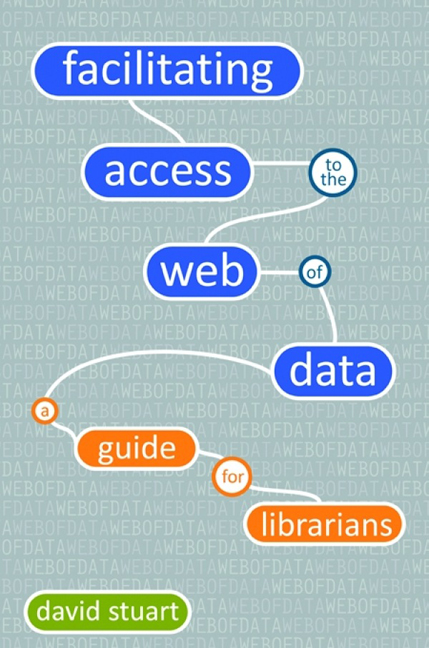Book contents
- Frontmatter
- Contents
- List of figures and tables
- Introduction
- 1 Open data
- 2 A semantic web: one that's meaningful to computers
- 3 Data silos
- 4 The semantic web: the RDF vision
- 5 Embedded semantics
- 6 The library and the web of data
- 7 The future of the librarian and the web of data
- Bibliography
- Index
- M-Libraries 2
- Making the Most of RFID in Libraries
- Access, Delivery, Performance
- Library Mashups
- Miscellaneous Endmatter
6 - The library and the web of data
Published online by Cambridge University Press: 08 June 2018
- Frontmatter
- Contents
- List of figures and tables
- Introduction
- 1 Open data
- 2 A semantic web: one that's meaningful to computers
- 3 Data silos
- 4 The semantic web: the RDF vision
- 5 Embedded semantics
- 6 The library and the web of data
- 7 The future of the librarian and the web of data
- Bibliography
- Index
- M-Libraries 2
- Making the Most of RFID in Libraries
- Access, Delivery, Performance
- Library Mashups
- Miscellaneous Endmatter
Summary
Introduction
As has been seen throughout the previous chapters, the web of data is increasingly becoming a reality as a wide range of organizations from all sectors begin to make data available online in a variety of machine-readable formats. Whilst the previous chapters have only given a brief overview of some of the technologies currently being used to make this data available, what should have become clear is that the web of data is a complex ecosystem, with various technologies emerging and competing for attention. Whilst some data may be most suited for publishing in RDF/XML, in other situations it may be more appropriate to provide access through more controlled APIs, or to use microformats to embed the data within web pages. Such decisions require both an understanding of the technologies, the aims and objectives of the organizations making the data available and the implications for potential users. What are needed are data professionals to help individuals and organizations make use of the data that is available, and help them make their own data available. Libraries, and the information professionals within them, are ideally placed to fulfil such a role.
Today, the amount of data collected dwarfs the small social science data repositories of the 1970s and 1980s, with an experiment like the Large Hadron Collider producing 15 petabytes of data each year (CERN, 2008), and it has been suggested that these large amounts of data have brought about a new paradigm in science (Bell, 2009). Many libraries are already recognizing the importance of the vast increase in data that is being created, especially research libraries which are trying to respond to an increased recognition of the importance of e-science and e-humanities. The Association of Research Libraries carried out a survey of the 123 member libraries in August 2009 (Soehner, Steeves and Ward, 2010) and found that among the 57 respondents, 21 institutions provided infrastructure and support for e-science, 23 institutions were in the planning stages and 13 did not provide any support for e-science.
- Type
- Chapter
- Information
- Facilitating Access to the Web of DataA guide for librarians, pp. 119 - 140Publisher: FacetPrint publication year: 2011



